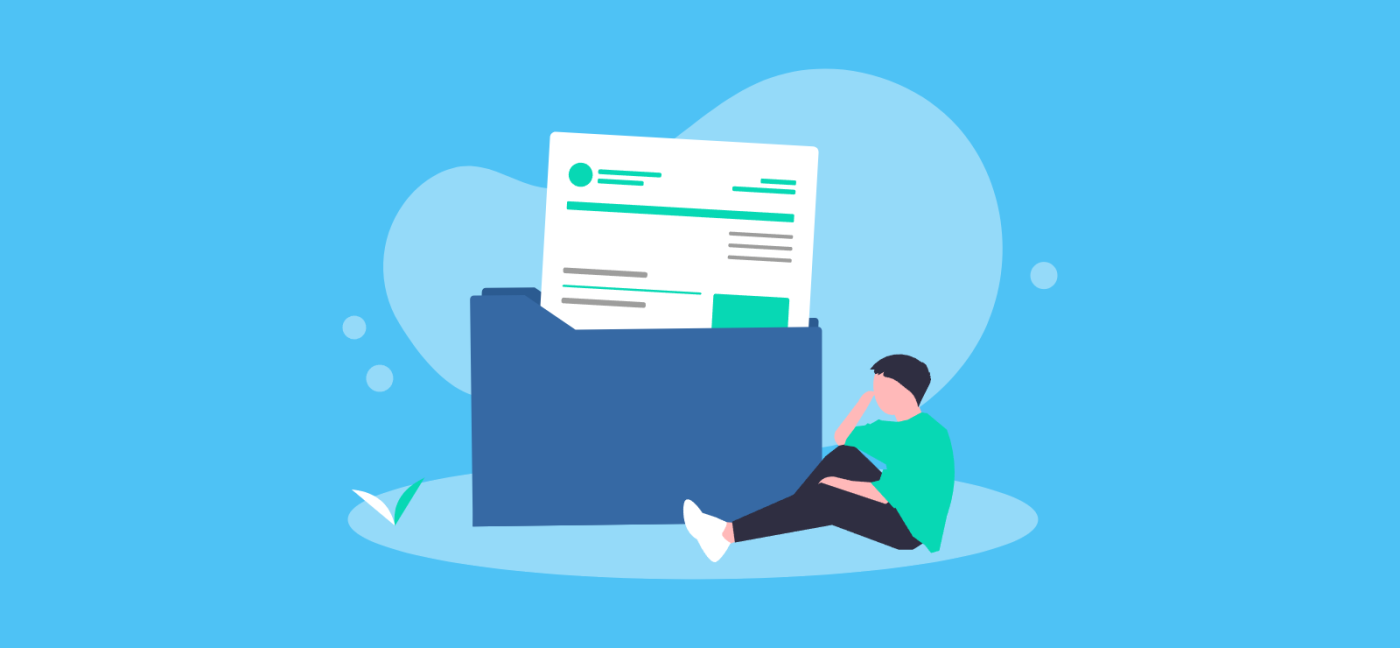

Self Assessment Tax Returns for Company Directors
Tax for company directors can sometimes seem a bit confusing because they often have several different sources of income. The problem is that these different forms of income are subject to tax, but usually in different ways and at different rates.
It means that as well as taking care of the Company Tax Return for the business, you might also need to register for PAYE for any salaries, and maybe even sign up for Self Assessment if you receive untaxed income such as dividends. Phew!
Just to make things really confusing, you also might not need to, so in this article we’ll explain what company directors pay tax on, and how to go about setting everything up correctly.
Do directors need to register for Self Assessment?
Self Assessment is used to report untaxed income, rather than being based on what you do for a living, so you don’t automatically need to register just because you’re a company director.
For instance, if you’re both a director and a shareholder in the company, you might pay yourself dividends. You’ll need to register for Self Assessment to tell HMRC about your dividend income, and to pay the right amount of tax on it.
It really all boils down to how you pay yourself from the company.
How directors get paid
In most small companies, the directors are also shareholders (or you might be a sole director and shareholder, doing everything yourself).
- In your capacity as a director, you can take a salary for your time. If this is at or above the Lower Earnings Limit for National Insurance (currently £6,500), it must be paid under PAYE.
- As a shareholder you can pay yourself a distribution of the company’s profits (known as a dividend).
Company directors and PAYE
As a company director you’re an ‘office holder’ rather than a regular employee. This means minimum wage doesn’t apply and you don’t have to take a salary, but lots of directors do because it gives them a regular source of income.
An important rule to remember though, is that if you do decide to pay yourself a salary for the work you do as a director, the payments might need to go through PAYE. This depends on how much you pay yourself as a salary.
If it’s less than the £5,000 Secondary Threshold then you won’t need to register. If it’s above the limit, then you will.
In short, the company acts as your employer. Any income tax or National Insurance is deducted from your salary, and the company pays it on to HMRC through the PAYE system.
Taxation doesn’t necessarily end there for most directors though because they’re usually also shareholders. This means they can take a smaller tax-efficient salary, and then pay themselves dividends.
Do directors need to show their salary on Self Assessment?
The quick answer is yes. If you do need to submit Self Assessment, it will include sections for each source of income (and how much tax you might already have paid on it, so you won’t be taxed twice). This is so that your total amount of income for the year is taken into consideration, so that you pay the right amount of tax.
What do dividend payments have to do with directors and Self Assessment?
Often, directors are also shareholders in the business and as such, they are entitled to receive dividends when the board declares them.
Dividends are paid from the after-tax profits of the company, so this means that they have already suffered some taxation. As a result, dividend tax is a lower rate than income tax (which takes us back to what we mentioned earlier about directors being tax-efficient when they pay themselves).
The tax due on dividend payments is paid through Self Assessment rather than being taxed at source like it is for a director’s salary.
It’s a good idea to put some money aside from your dividend payments so that you have cash to pay your tax bill! This is something that sometimes catches people out because they assume that as they are paying PAYE on their salary, then all their tax is taken care of (it isn’t). Our online dividend tax calculator can help you work out what you can expect to pay on this sort of income.
Self Assessment and directors’ pensions
The subject of pensions can be hugely complex, but because pensions attract tax relief there are some aspects which crossover into Self Assessment. This is because paying into a pension means that some of the money you would normally pay as tax can go into your pension instead.
What makes it particularly tricky is that there are so many different types of pensions in existence, and this affects the tax. For instance, some pensions are paid:
- As part of the PAYE process, so there won’t normally be any issues with tax
- Post-tax, in which case your pension provider will add back an amount to make up for the tax you’ve already paid
- Pre-tax, in which case they won’t add anything back
It’s strongly advisable that you contact your pension provider to check what type of scheme you are on, to ensure you enter information in your Self Assessment correctly. Otherwise, you may find that you end up paying too much tax, or not enough.
Benefits and gifts
If you are a director of a company, then you are entitled to some benefits free of tax. You do need to be careful though because there are lots of rules that determine what is and isn’t tax-free.
In general, if a company pays for something that you use personally (called a benefit in kind or BiK) then it will be taxable. On the other hand, there are some things the government feels should be incentivised, and as such won’t attract tax.
For example, your company can pay up to £500 per year for pensions advice, provide you with a mobile phone for personal and business use, and pay you an allowance for working from home. If you have other benefits, such as a company car, then you may well have to include them on your tax return. Your company should provide you with a copy of the information it sends to HMRC.
Director’s Loan Accounts and Self Assessment
If you take money out of your limited company which isn’t a salary, dividend, or to reimburse you for an expense, it’s usually considered to be a director’s loan. This is fine, as long as the loan account is repaid within 9 months after the end of the company’s financial year. If it isn’t, HMRC see it as you taking money out of the business for yourself, so you’ll need to pay tax on it.
If the director doesn’t repay the account, or they receive a loan from their company which is interest-free or has an interest rate below what is available on the open market, then the balance might be subject to tax. As a result, you’ll need to declare any outstanding director’s loans on your Self Assessment return.
Directors and Self Assessment – what should you do?
So, if you do need to register for Self Assessment, the first piece of advice is to make sure you do it as soon as possible. This will ensure you don’t face any penalties for not completing a return. Secondly, make sure you save EVERYTHING. Set up a Self Assessment folder on your computer, or ideally in a cloud storage location (like Pandle) so you don’t lose it if your PC goes into meltdown.
Save hard-copy invoices, receipts, and documentation, and take a photo or scan them and save them to your online folder or cloud storage. Some software providers let you attach the document to the particular transaction record it relates to, which makes things even easier.
We can promise you that doing it as you go along is so much easier than scrabbling around on tax deadline day trying to find things. Have a chat with a professional advisor but do this well before the end of the year as the more time they have to organise things, the better off you’ll be! Our guide explains what documents you need to send to your accountant for Self Assessment in more detail.
Our online accountancy packages for limited companies include the cost of Self Assessment for up to two directors. Call the team on 020 3355 4047, or get an instant online quote.
Want to learn more?
Subscribe to our newsletter to get accounting tips like this right to your inbox

Read more posts...

Accounting for Cash Payments in UK Businesses
3rd March 2026Card machines, Apple Pay, and bank transfers may be the norm these days, but cash is far from dead. This blog breaks…
Read More
When Should I Submit My 2025/26 Self Assessment Tax Return?
2nd March 2026You don’t have to wait for the January deadline, and can submit your Self Assessment return as soon as the tax year…
Read More
Transferring Assets to A Limited Company
1st March 2026Incorporating your company is a big, exciting step, but there’s a bit of a hill to climb first before you can enjoy…
Read MoreConfirm Transactions
The number of monthly transactions you have entered based on your turnover seem high. A transaction is one bookkeeping entry such as a sale, purchase, payment or receipt. Are you sure this is correct?
Please contact our sales team if you’re unsure
VAT Returns
It is unlikely you will need this service, unless you are voluntarily registered for VAT.
Are you sure this is correct?
Call us on 020 3355 4047 if you’re not sure.
MTD IT Quarterly Updates
Your final, end of year MTD Income Tax submission is included in your fee, without this add-on service.
We would recommend you submit the quarterly updates yourself using Pandle or alternative bookkeeping software.
However, if you would prefer us to submit these quarterly updates for you, there is an additional fee of £35.00 per month.
Call us on 020 3355 4047 if you’re not sure.
Bookkeeping
You will receive our bookkeeping software Pandle for free, as part of your package.
You can use this to complete your own bookkeeping, or we can provide a quote to complete your bookkeeping for you.
Please select and option below:
Call us on 020 3355 4047 if you’re not sure.

